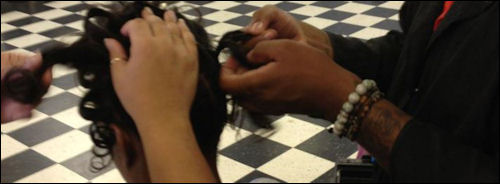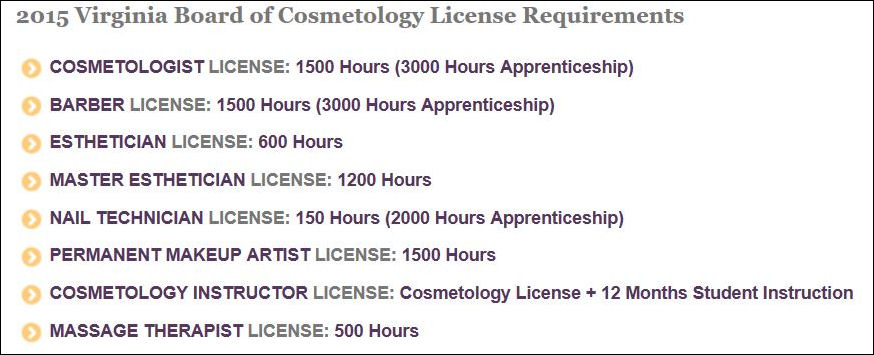
Cosmetology licensing: Does it really take 1,500 hours to learn how to braid hair? Image credit: College of Beauty and Barber Culture Facebook page.
William E. Grobes IV has pleaded guilty to charges of committing wire fraud and money laundering in the operation of the College of Beauty and Barber Culture in Chesapeake. The case against him, according to WAVY-TV:
Grobes represented to the [Veterans Administration] that CBBC provided full-time schooling to hundreds of veteran students beginning in October 2011. In reality, prosecutors say the school was a sham. Most vets enrolled in CBBC courses received few, if any, hours of instruction. There were apparently no tests, exams or practical exercises given at the school. Instead, students were directed to sign in and out of the school each day so that Grobes could report to the VA that they were enrolled and attending. In exchange, CBBC received GI Bill tuition payments for each veteran from the VA.
Google “cosmetology school fraud,” and you will see that owners of cosmetology and beauty schools are running rackets across the country. In Grobes’ case, he was ripping off the VA. In many other cases, cosmetology schools charge outrageous tuitions, which students finance through government-backed debt. When the VA isn’t getting sheared, the federal student loan program is taking a haircut.
Would-be barbers, hairdressers, hair braiders, hair waxers, beauticians and tattoo artists cannot simply go into business for themselves. They must acquire a license. (Here in Virginia, some professions are accessible through apprenticeships, but these take twice as many hours.) Here are the requirements for Virginia:
Irate customers aren’t demanding these licensing requirements as a form of consumer protection. The impetus comes from practitioners who benefit by restricting access to their fields and limiting competition. And any effort to roll back the cosmetology licensing law, I would wager, would be bitterly opposed by schools that make money from teaching these skills.
If you’re looking for an anti-poverty, job-creation program that doesn’t requires spending a lot of public money, try reforming the cosmetology license law.



